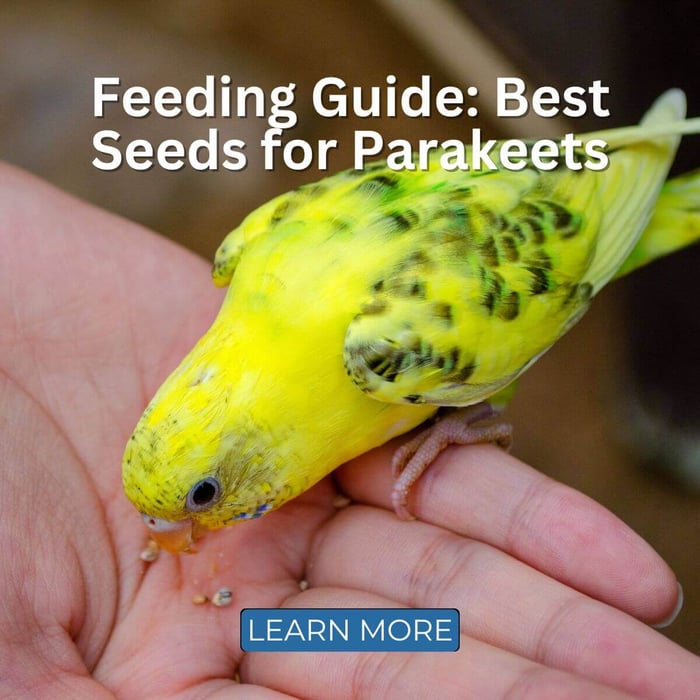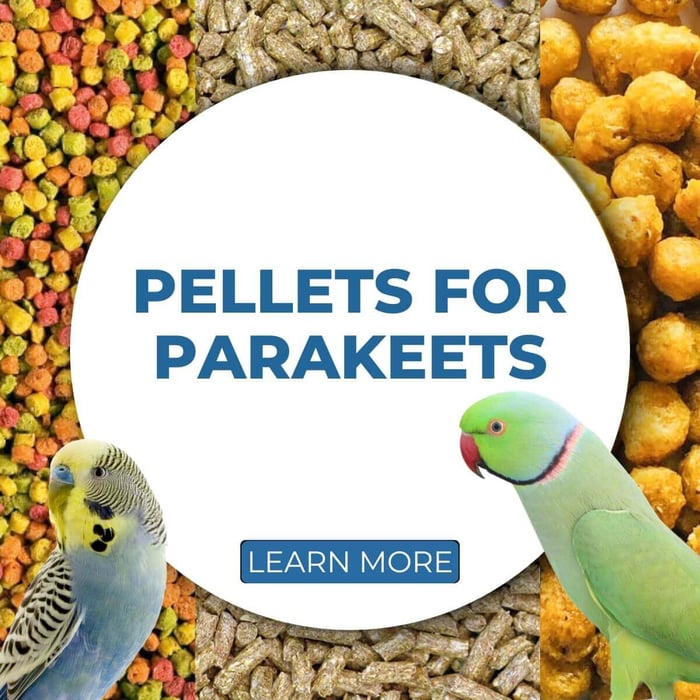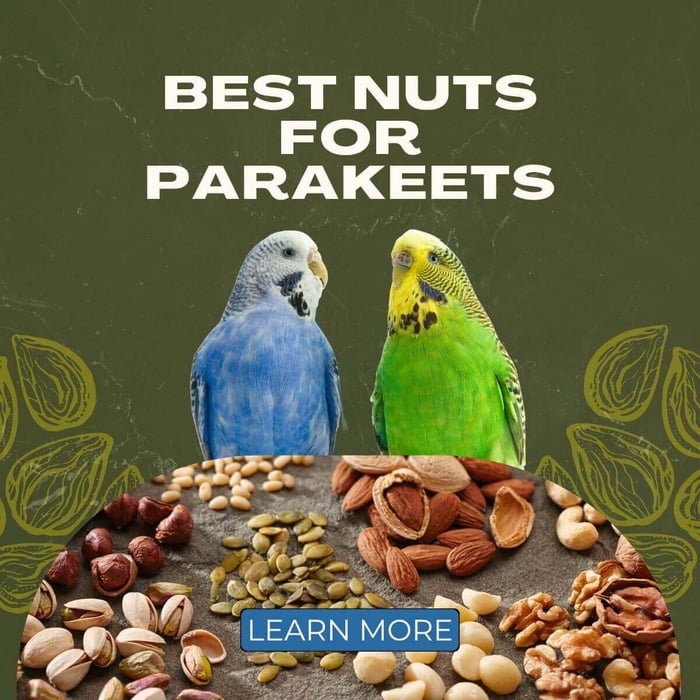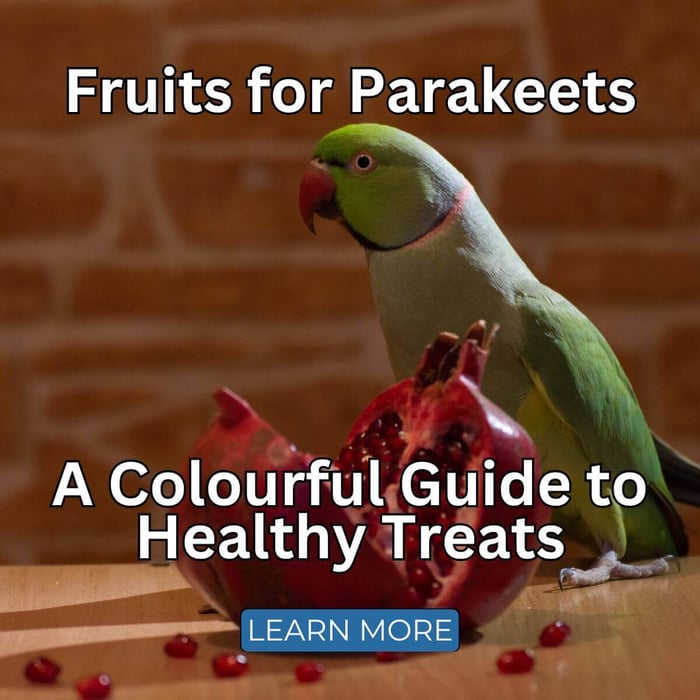Treats for Parakeets: Healthy, Fun & Safe Options for Your Bird
What are the best treats for parakeets? In short, the best treats are safe, nutritious, and enjoyed in moderation. Fruits, vegetables, seeds, and specialised mixes all make excellent choices, especially when used for training, bonding, and enrichment. But not all parakeet treats are created equal, and offering the wrong foods can lead to health issues.
In this article, you'll discover which treats are ideal for parakeets, how often to offer them, and which products from Parrot Essentials can help you deliver these treats safely and effectively.
What Counts as a Parakeet Treat?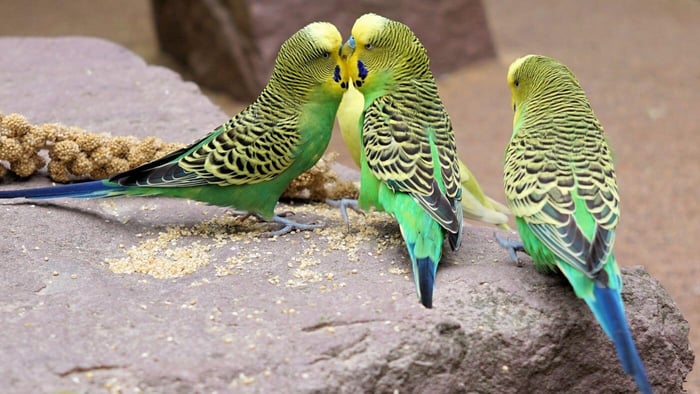
A parakeet treat is any food item offered in addition to a bird's regular diet that provides enjoyment, variety, and enrichment. Treats are not everyday meals, they're bonuses. When chosen wisely, they support mental stimulation and physical health.
Key qualities of good treats:
- Nutrient-rich or naturally sweet
- Free from added sugar, salt, and artificial additives
- Easy to serve in small portions
- Appropriate for your parakeet's size and species
Best Treats for Parakeets
1. Fresh Fruits
Fruits offer natural sweetness and essential vitamins. They're great for variety, but should be limited due to natural sugar content.
Safe fruits for parakeets:
- Apple (seedless)
- Mango
- Blueberries
- Banana
- Melon
- Papaya
- Pear
Serving tip: Offer a thin slice or a couple of small cubes, 2–3 times per week. Always remove seeds or pits. Try the Parrot Fruit Skewer Food Holder from Parrot Essentials. This stainless-steel tool lets you present fruit hygienically while encouraging natural pecking behaviour.
2. Fresh Vegetables
A vegetable treat is a crunchy, fibrous snack low in sugar and full of vitamins and minerals. Veggies are safe for daily feeding and should form a larger portion of your parakeet's treat routine.
Great choices include:
- Carrots (grated or chopped)
- Broccoli florets
- Sweetcorn
- Spinach
- Kale
- Bell peppers
- Green beans
Serving tip: Wash thoroughly and serve raw or lightly steamed. Chop into small, manageable pieces.
3. Millet Sprays
Millet is a natural, grain-based treat that parakeets absolutely love. It's lightweight, easy to hang, and ideal for training or bonding.
Why millet is a great treat:
- High in carbs and protein
- Easy for parakeets to eat and manipulate
- Encourages foraging and activity
Serving tip: Offer 1–2 small sprigs per week, especially during training or taming sessions.
Best pick: Red Natural Millet Sprays from Parrot Essentials. Grown without pesticides, these sprays are a perfect occasional reward for all parakeet species.
4. Seed-Based Treat Sticks
Seed sticks are compact, tasty blocks made from natural seeds and grains. They're ideal for short-term enrichment but should be treated as an occasional indulgence due to their calorie density.
Popular ingredients:
- Canary seed
- Millet
- Flaxseed
- Honey (use in moderation)
Serving tip: Hang inside the cage for 1–2 days max, and remove if your bird finishes it too quickly.
Try this: Versele-Laga Prestige Small Parakeet & Budgie Treat Sticks with Eggs & Thyme - 60g – crunchy and full of flavour, these are great once a week.
5. Dried Fruit (Unsweetened)
While fresh fruit is best, unsweetened dried fruit can also be offered as a special treat. Look for pieces without added sugar, sulphur, or preservatives.
Safe dried fruits:
- Apple rings (unsweetened)
- Banana chips (oil-free)
- Berries (unsweetened)
- Mango (no added sugar)
Serving tip: Offer 1–2 small pieces per week. Avoid mixes made for humans as they often include sulphur or sweeteners.
6. Herbs and Edible Flowers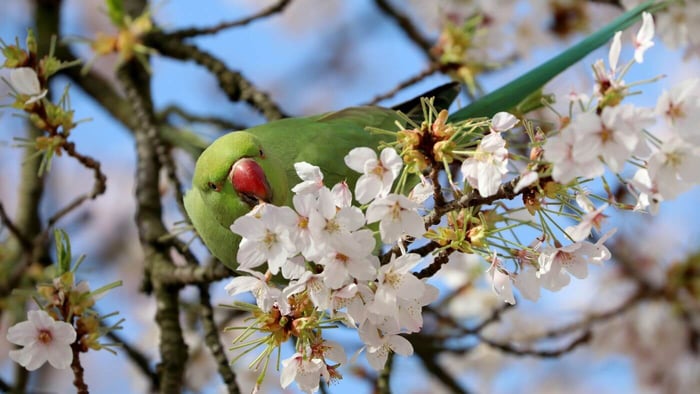
Herbs and edible flowers are a fantastic way to introduce variety and gentle enrichment into your parakeet's diet. These plant-based treats are not only aromatic and colourful, but they also offer a range of health benefits, from supporting digestion to reducing stress and inflammation. Birds are naturally attracted to different textures and scents, and herbs and flowers offer both.
Safe herbs for parakeets include:
- Basil – Contains natural anti-inflammatory and antibacterial properties.
- Parsley – A source of vitamins A, C, and K, but should only be fed in moderation due to its oxalate content.
- Dill – A fragrant herb that may support digestion and freshen breath.
- Coriander (Cilantro) – Rich in antioxidants and a favourite for many birds.
- Mint – Cooling and refreshing, mint can be given in small amounts to stimulate curiosity and appetite.
Safe edible flowers include:
- Chamomile – Known for its calming properties, chamomile can help ease anxiety and support restful sleep.
- Dandelion flowers and leaves – These are nutrient-dense and excellent for liver support and detoxification.
- Hibiscus – Bright and tangy, hibiscus petals are packed with vitamin C and antioxidants.
- Rose petals – Only offer pesticide-free petals. They are mildly fragrant and safe in small amounts.
Always ensure that the herbs and flowers you offer are organic, free from pesticides, and thoroughly rinsed before serving.
Serving tip: You can offer herbs and flowers in a variety of ways. Try hanging a sprig of basil or dill in your bird's cage, mixing chopped mint or coriander into fresh vegetable "chop," or placing petals in a shallow dish for your bird to explore. Adding herbs and flowers to your parakeet's diet is a simple yet effective way to promote natural foraging and introduce new tastes and smells without relying on sugary or fatty treats.
7. Soft Foods: Cooked Grains and Legumes
Soft, cooked foods like grains and legumes are excellent occasional treats that provide a nutritional boost, especially during cooler months or when your parakeet is moulting or recovering from illness. These foods are rich in protein, fibre, vitamins, and minerals, and they offer a different texture and taste compared to the usual dry diet.
Safe cooked grains include:
- Brown rice – A wholesome source of fibre and energy.
- Quinoa – A complete protein containing all nine essential amino acids.
- Barley – Rich in selenium and great for heart and digestive health.
- Couscous and bulgur – Soft and fluffy when cooked, offering a fun change in texture.
Safe legumes include:
- Lentils – Packed with plant protein and fibre; red lentils cook fastest and mash easily.
- Chickpeas – A creamy treat when cooked and mashed, high in protein and iron.
- Split peas – These can be cooked until soft and mashed into a warm treat.
All grains and legumes must be fully cooked, cooled, and served plain—never with salt, oil, garlic, or seasoning. Avoid canned versions that may contain preservatives or sodium.
Serving tip: Prepare a small batch of mixed grains and legumes once a week, and store portions in the fridge for up to three days. Serve one to two teaspoons in a clean dish or on a spoon to encourage hand feeding. These soft foods can also be added to your parakeet's fresh chop. Offering cooked grains and legumes once a week not only adds nutritional variety but also gives your bird a comforting and satisfying snack that supports growth, recovery, and overall well-being.
How Often Should You Give Parakeets Treats?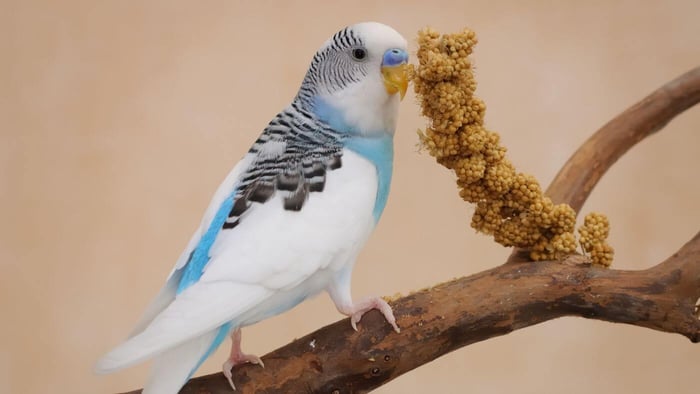
A healthy treat routine keeps your bird happy without disrupting their diet. Here's a suggested schedule:
| Treat Type: | Recommended Frequency: |
| Leafy greens & vegetables: | Daily (small portions) |
| Fresh fruits: | 2–3 times per week |
| Millet sprays: | 1–2 times per week |
| Seed treat sticks: | Once per week |
| Nuts/dried fruits: | Occasionally |
| Cooked grains/legumes: | Weekly (1 tsp max) |
What to Avoid in Parakeet Treats
Parakeets are sensitive to many common household foods. Avoid offering anything with:
- Salt or sugar
- Chocolate
- Avocado
- Onion or garlic
- Dairy
- Caffeine
- Alcohol
- Artificial colours or sweeteners
Final Thoughts: Treats That Keep Your Parakeet Healthy and Happy
The best treats for parakeets are those that bring joy without compromising their health. Stick to fresh produce, millet sprays, and natural seed-based snacks in small portions.
At Parrot Essentials, we offer a carefully curated range of healthy parrot treats and feeding accessories to help you enrich your bird's life every day.
FAQs
What are the healthiest treats for parakeets?
The healthiest treats include fresh vegetables, small portions of fruit, millet sprays, herbs, and cooked grains or legumes. Choose options without added sugar, salt, or artificial ingredients.
How often should I give my parakeet treats?
Treat frequency depends on the type: vegetables can be offered daily, fruits 2–3 times per week, and items like millet, seed sticks, or cooked grains should be limited to once or twice weekly.
Is millet safe for daily feeding?
While millet is a favourite, it should only be given 1–2 times per week as a treat. Daily feeding can lead to nutritional imbalance.
Are seed sticks good for parakeets?
Seed sticks are tasty and great for enrichment, but they should be treated as an occasional treat, about once a week, due to their high fat and calorie content.
Can I give my parakeet cooked food like rice or lentils?
Yes, fully cooked and cooled grains and legumes like rice, quinoa, and lentils make excellent weekly treats. Serve plain, with no added salt or oil.

